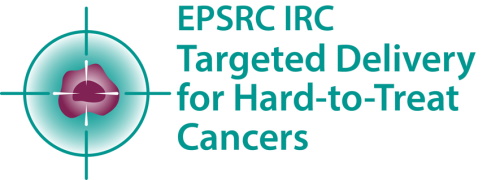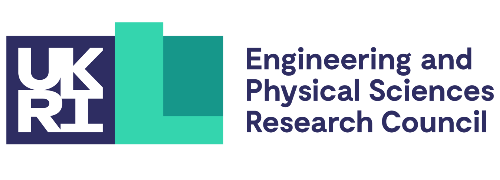Derek Thomas is Conservative MP for St Ives and Chair of the All-Party Parliamentary Group on Brain Tumours In this guest blog, he talks about what the pandemic could teach government about research into brain tumours and why we need to recognise this uniquely complex disease demands a unique response.
“Having seen the remarkable speed at which joined-up thinking led to treatments for COVID-19, much could be achieved if Government treated brain tumour research as a critical priority” Derek Thomas MP
Joining the All-Party Parliamentary Group on Brain Tumours (APPGBT) was one of the first things I did after being elected to Parliament in 2015 and I was delighted to take up the position of Chair of the APPGBT in 2017.
In 2018, the Government announced it would allocate £20 million for research into brain tumours and this was boosted by a pledge of £25 million from Cancer Research UK. After the death of Dame Tessa Jowell from a brain tumour and the establishment of the Tessa Jowell Brain Cancer Mission, the Government allocated a further £20 million.
The provision of £65 million heralded a massive shift in focus towards brain tumours. However, meetings of the APPGBT over the five years since the funding announcements reveal a concerning lack of grant deployment into the hands of those best equipped to unlock the complex puzzle that brain tumours pose – the researchers.
Of the £40 million Government commitment, on 25 January 2023 only £10.7 million had been awarded since June 2018, with £6 million of this not easily identifiable as relevant to brain tumours.
What has not changed since 2018 is that brain tumours continue to kill more children and adults under the age of 40 than any other cancer.
For this reason, the APPGBT decided to conduct the ‘Pathway to a Cure – breaking down the barriers’ inquiry which aimed to revisit the optimism of 2018, to find out where money has been allocated in the intervening years and to identify any barriers to it flowing to its intended recipients.
To do this we asked those at the coalface of scientific endeavour for their thoughts in both written and oral evidence and it is this evidence that is at the core of this report and its recommendations.
I firmly believe that the Government wants to fund brain tumour research and the researchers clearly want funding so there is supply and there is demand but the mechanism for this to function as an effective market system is broken.
The spirit of our inquiry was to seek out the root of this breakage and, with positive intent, identify solutions to the blockages that affect the ability of the scientific and clinical communities to advance options for, and the outcomes of, those affected by this devastating disease.
This inquiry has found that the current funding system is unfit for purpose.
The research funding system has been built in silos and needs to be joined up from basic science through to clinical trials.
Patients with brain tumours should have equity of access to trials of new anti-cancer drugs that are currently only available to patients with other malignancies as the current system can exclude them for fear of skewing results.
Patients and families continue to be let down despite the Government’s promise of millions of pounds of investment which hasn’t materialised.
There are issues with the treatment of terminally ill children; some are being denied access to last resort clinical trials despite their parents wishing for them to participate.
The inquiry also highlighted a so-called ‘valley of death’ in which potential new treatments discovered in the laboratory fail to reach patients because of unnecessary complexity in the way research is funded.
18 months of evidence gathering was distilled down into six key recommendations:
• The Government should recognise brain tumour research as a critical priority, developing a strategic plan for adequately resourcing and funding discovery, translational and clinical research by 2024, ring-fencing £110 million of current and new funding to kick-start this initiative
• Cell line isolation and biobanking is happening but only at a minority of sites across the research community. Government must ensure a robust tissue collection and storage infrastructure is in place across the country
• Government must do more to build research capacity encouraging and retaining talent through fellowships and research incentives
• There are a limited number of clinical trials available for brain tumour patients and the national trials database is not reliable. Government should ensure equity of access to clinical trials and that the clinical trial database is robust and up to date
• Pharmaceutical companies are choosing not to pursue the development of brain cancer drugs in the UK. Government should simplify the regulatory process and introduce tax reliefs and incentives for investors to encourage investment for the longer time periods necessary to develop and deliver new brain tumour drugs
• Funding bodies should ring-fence specific funding for research into childhood brain tumours where survival rates for the most aggressive tumours have remained unchanged for decades leading to frustrated families seeking costly and unproven treatment abroad
The economic costs of brain tumours among the working age population have been estimated at £578 million per annum, ranking the third highest amongst more common cancers behind lung (£1.2 billion) and breast (£635 million).
The urgent need for more investment in brain tumour research has not gone away.
Charities have suffered a loss of income during the pandemic and are now suffering further due to the cost-of-living crisis.
They should not be relied upon to provide funding to advance treatments for brain tumours; Government funders should be taking a leading role.
Having seen the remarkable speed at which joined-up thinking led to treatments for COVID-19, much could be achieved if Government treated brain tumour research as a critical priority.
We must recognise a uniquely complex disease with a unique response.
For those in the brain tumour community, this is an emergency.
Over the coming months and years, we will use the results of this inquiry to keep brain tumours on the political agenda and improve outcomes for brain tumour patients.
Change can’t come soon enough in terms of new options and better outcomes for brain tumour patients and it is the aim of all of us involved in the APPGBT to make a difference.
It is a cause we all care very deeply about.



